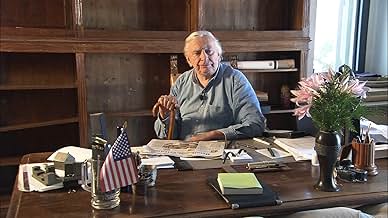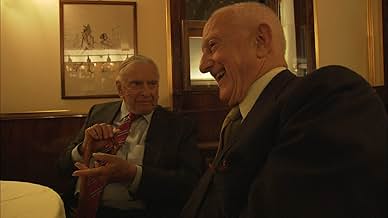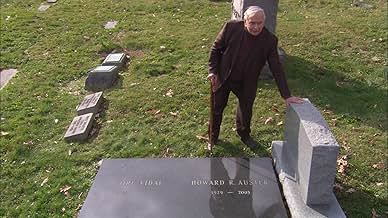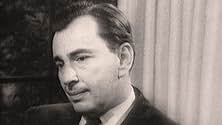With a lifetime spanning across three-quarters of the twentieth century and into the early decades of the twenty-first, Gore Vidal had a ringside seat for much of what came to be termed "the American century." It's perhaps no wonder then that he became an active chronicler of its history and politics in novels, essays, lectures, commentary, and more besides. Nor was he limited to merely that topic, something that this 2013 documentary revels in across its ninety minute running time.
Scaffolded by a series of interviews conducted with Vidal over the final years of his life, Nicholas D. Wrathall explores the life of a uniquely American figure. One that was a vocal critic of the American establishment yet was born into a family that, one of the featured clips notes, made him essentially one of its charter members. Cynical about the nature of politics, yet compelled to twice run for public office unsuccessfully. Armed with a passion for American history and its politics, yet lived for a great deal of time away from the country that he loved as an ideal but frustrated him with its reality. Wrathall uses the interviews of an elderly but still sharp Vidal to look back on the life and the contradictions built around them.
All the while not losing sight of the things that made Vidal the public figure he was: his wit and cynicism. The wit is on display throughout and, via archive interviews, was evident clearly from a young age. Something aided by a gift for mimicry that ranged from the comedic to the dramatic, depending on the anecdote being told. Whether in interviews or in the famed television clashes with William F. Buckley (themselves the topic of the later documentary Best of Enemies), it's something that's aged well. Not to mention something that feels authentic rather than as part of a persona, something that is also evident from interviews with numerous figures in his circle from Burr Steers and Christopher Hitchens.
And the cynicism? In some ways Vidal was on point and, as the documentary argues, more than a little prophetic. It's certainly difficult to argue with his points on America's swing to the political right starting in the late 1960s that led to Nixon, Reagan, and eventually George W. Bush. The latter being the topic of more than a few of the late-in-life interviews presented here (and led to his falling out with Hitchens who spent of his own final decade supporting and defending the Bush administration's War on Terror).. Nor can it be said that Vidal limited his criticisms given the assessments of JFK, Carter, and the newly elected Obama. The documentary, after all, drawing its title from the author's assertion that "We are the United States of Amnesia, we learn nothing because we remember nothing."
Yet, watching the documentary in 2024, it's hard not to wonder how much of Vidal's cynicism might have been misplaced. Or might, in fact, having unknowingly contributed to the current moment in which this review is being written in. What Vidal would have made of things is anyone's guess but, clearly, he'd have had something interesting to say about it all.
And, if nothing else, the documentary offers plenty of interesting things for those both new and familiar with Vidal to discover. One which draws neatly on the life of a man who raged against the dying of a particular light with wit and cynicism. Offering us all a chance to learn something and, hopefully, remember something as well.

























